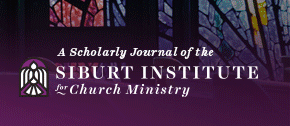Abstract
While excellent resources are available to teach people how to use labyrinths in personal ways, there are fewer guides available for seeking Christian community awareness using that same tool. This essay seeks to explore the value of a labyrinth as a sacred space, and it offers several novel suggestions for incorporating the labyrinth into the rhythms of the church. Although very little is known about how medieval Christians utilized the labyrinth, today’s Christians can still experience God in those same spaces. People need physical spaces in which they can gather in unexpected ways—places where they can explore their spiritual creativity in community. Churches are encouraged to consider how a labyrinth might be specifically used to foster community prayer and devotion. For example, the space could be used for commemorating life passages, allowing community prayers to be offered, remembering the liturgical calendar, practicing lectio divina, celebrating intergenerational solidarity, and exploring community discernment. Finally, churches are invited to practice hospitality by sharing their labyrinth space with guests.
Creative Commons License

This work is licensed under a Creative Commons Attribution 4.0 License.
Recommended Citation
Knight-Slater, Denice F.
(2021)
"Using the Labyrinth to Foster Community Prayer and Devotion,"
Discernment: Theology and the Practice of Ministry: Vol. 7:
Iss.
2, Article 2.
Available at:
https://digitalcommons.acu.edu/discernment/vol7/iss2/2

